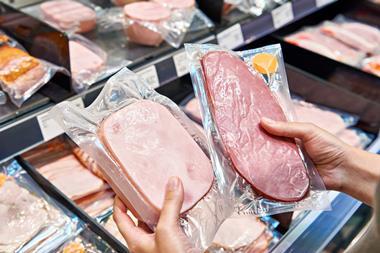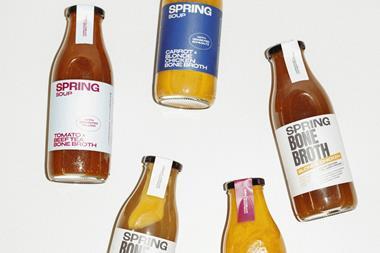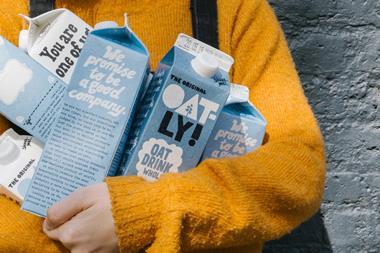Welsh milk and butter could join Champagne, Parma ham and Melton Mowbray pies as protected food names, with the Welsh Assembly looking to submit the principality's finest products to the EU protected food names scheme.
Nine Welsh foods have been identified on behalf of the Welsh Assembly government by consultancy ADAS as worthy of PDO, PGI or TSG status.
The Assembly hoped to improve consumer awareness of the variety of Welsh produce by supporting protected name applications, said Jonathan Parker, head of food and drink market development at the Assembly's department for rural affairs.
"We may have moved on quite a long way from people seeing Wales as the land of lamb, leeks and laverbread, but to demonstrate the diversity of food and drink products you buy from Wales we can use protected name status to help us along with that."
Gaining a PDO or PGI was also a valuable marketing tool for suppliers in gaining listings with supermarkets, he added. "I'm aware of at least one multiple retailer that has hinted that if a particular product potentially going into a category had protected status, it certainly would help the suppliers' case."
The compilation of the shortlist follows the launch of a £75,000 initiative at last year's Royal Welsh Show to increase the number of Welsh products holding protected status from two to 10 within two years. At present, only Welsh Beef and Welsh Lamb are recognised, although Welsh cider and perry are in the process of applying.
The producers of the nine products have until the end of this month to submit first-draft applications to ADAS, which will then advise on their chances of success. It is likely that ultimately only seven of the nine products will be put forward to the EC.
The nine products are: Anglesey Sea Salt, Carmarthen ham, Pembrokeshire potatoes, Penclawdd cockles, Penclawdd laverbread, North Menai Strait mussels, Cardigan Bay Prawns, Welsh milk and Welsh butter.
Nine Welsh foods have been identified on behalf of the Welsh Assembly government by consultancy ADAS as worthy of PDO, PGI or TSG status.
The Assembly hoped to improve consumer awareness of the variety of Welsh produce by supporting protected name applications, said Jonathan Parker, head of food and drink market development at the Assembly's department for rural affairs.
"We may have moved on quite a long way from people seeing Wales as the land of lamb, leeks and laverbread, but to demonstrate the diversity of food and drink products you buy from Wales we can use protected name status to help us along with that."
Gaining a PDO or PGI was also a valuable marketing tool for suppliers in gaining listings with supermarkets, he added. "I'm aware of at least one multiple retailer that has hinted that if a particular product potentially going into a category had protected status, it certainly would help the suppliers' case."
The compilation of the shortlist follows the launch of a £75,000 initiative at last year's Royal Welsh Show to increase the number of Welsh products holding protected status from two to 10 within two years. At present, only Welsh Beef and Welsh Lamb are recognised, although Welsh cider and perry are in the process of applying.
The producers of the nine products have until the end of this month to submit first-draft applications to ADAS, which will then advise on their chances of success. It is likely that ultimately only seven of the nine products will be put forward to the EC.
The nine products are: Anglesey Sea Salt, Carmarthen ham, Pembrokeshire potatoes, Penclawdd cockles, Penclawdd laverbread, North Menai Strait mussels, Cardigan Bay Prawns, Welsh milk and Welsh butter.


















No comments yet